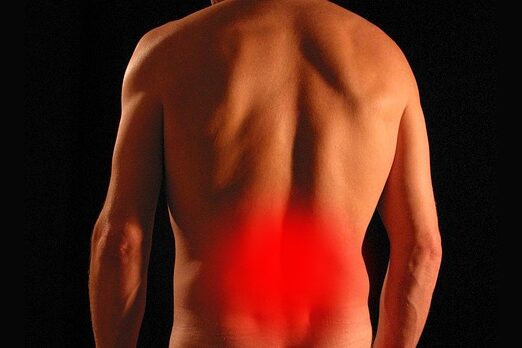Prostate cancer is the most common tumor in men and the third cause of cancer death among men. According to data from the Spanish Society of Medical Oncology (SEOM), this pathology affects more than 1.2 million men in the world , with more than 29,000 new cases diagnosed in Spain . It is expected that more than 30,000 new cases will be diagnosed in our country this year.
It is estimated that “ one in four men will suffer from prostate cancer at some point in their lives ,” warns José Ángel Gómez Pascual, head of Urology at the Quirónsalud Málaga Hospital. For this reason, it is vital to “ emphasize the importance of prevention and the need for annual check-ups from the age of 50, check-ups that should be done from the age of 40-45 if you have a first-degree relative who has suffered from prostate cancer or if you have a positive BRCA2 gene, which is related to an increased risk of developing certain cancers, such as prostate cancer.”
Prostate cancer, Carlos Núñez , head of the Urological Surgery Service at MD Anderson Cancer Center Madrid , tells CuídatePlus, “ occurs when cells in the prostate (a gland in the male reproductive system located below the bladder and in front of the rectum) grow and multiply uncontrollably , damaging surrounding tissue and interfering with normal prostate function .” The cells “can later spread to other parts of the body.”
It is more common in “ older ” men and is the “most common form of male cancer” . The highest probability of surviving prostate cancer comes from its early detection . When it is identified early, there is almost a 100% chance of cure . How can it be detected? Although experts warn that prostate cancer does not present symptoms in early stages, it is important to know some of the symptoms that can make us suspect that something is not right and that we should consult to rule out a tumor of this type.
As Núñez indicates , men with prostate cancer may experience one or more of the following symptoms:
- Pain or burning when urinating
- Inability to urinate or difficulty starting to urinate
- Frequent or urgent need to urinate
- Difficulty emptying the bladder completely
- Blood in urine or semen
- Continuous pain in the lower back, pelvis or thighs
As the specialist points out, “ it is important to bear in mind that none of these symptoms are specific to cancer and that most men with prostate cancer do not show any of them, however, they are signs that may indicate a problem that should be consulted .” Therefore, Núñez reminds that “ their presence should lead men to seek a medical evaluation, with a digital rectal exam of the prostate and determination of serum PSA, by a urologist or other doctor.”
What tests detect prostate cancer?
Cancer screening consists of medical tests that are performed when a person has no symptoms. According to Núñez, “ it should begin at age 50 in most men and at age 45 in black men or those with a family history (father, brother or son) of prostate cancer.”
The rectal tract is the simplest and oldest screening test for prostate cancer. In this test, the expert reports, “ the urologist gently inserts a gloved index finger into the rectum to feel the prostate for an enlargement or other obvious abnormalities, such as a mass.” Obviously, the rectal tract is not a definitive cancer test , but “ regular examinations help the urologist detect changes in the prostate over time that could indicate precancerous conditions.”
On the other hand, prostate-specific antigen (PSA) “ is a glycoprotein produced by the epithelial cells of the prostate . A blood test can determine the amount of PSA circulating in the blood, expressed in nanograms per milliliter (ng/ml). The resulting PSA concentration is used to assess the risk of cancer.”
Who is at higher risk for prostate cancer?
There are many factors that can influence the development of prostate cancer, among which Núñez highlights:
- Age : Men aged 50 years or older are at higher risk. Age is the most influential risk factor .
- Family history : The risk is higher if there is a family history (especially in a father, brother or son) of prostate cancer.
- Race : Black men have nearly twice the incidence of prostate cancer as white men. The disease is less common in Asians and Native Americans.
- Diet : A diet high in fat, particularly animal fat, may increase the risk of prostate cancer. Diets rich in fruits and vegetables are thought to reduce the risk.
Date: Updated: Monday, 10 June, 2024 21:07:22 CEST
Source: Cuidate + Marca.com
Author: Joanna Guillen Valera
Photo: Pixabay
Note: Nutrigenomics Institute is not responsible for the opinions expressed in this article.






